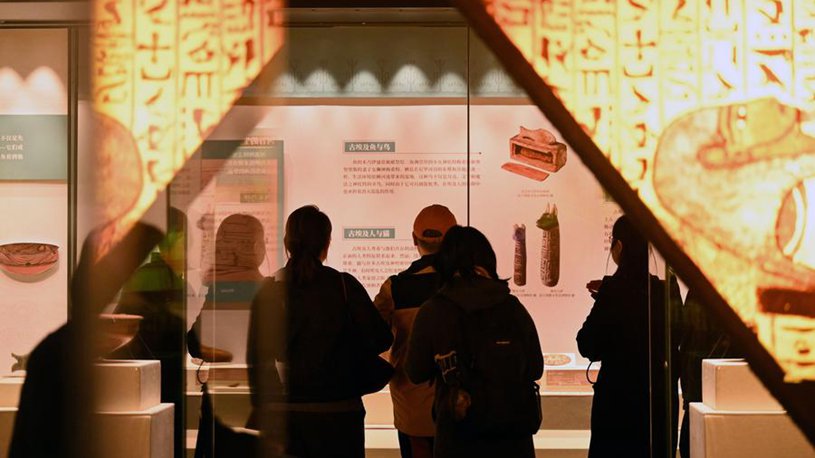BEIJING, March 25 (Xinhua) -- After a nine-hour drive, Su Youchun arrived in Tianshui, Gansu Province, with a hunger fueled by anticipation for one of China's latest online culinary obsessions: Malatang, the numbing-spicy hotpot.
The street snack, with various ingredients cooked in a chili oil-rich sauce, did not fail him. "The chili peppers in Tianshui's Malatang are delicious and not too overpowering. They have a unique flavor of their own," said Su.
Su's judgment of Malatang should not be taken with a grain of salt, as the 47-year-old has worked in the catering industry for nearly 20 years. Moreover, he hails from Sichuan, a province synonymous with spice, most notably its own signature numbing-spicy hotpot.
CHARM OF DELICACIES
Sichuan-style hotpot first graced Tianshui's dinner tables in the 1990s, and since then has taken on a life of its own, distinct from its forebearer thanks to its inclusion of local chili pepper strains.
"Our locally-grown chili peppers are the soul of the dish. Building on that, various recipes and innovations have flourished," said Ha Haiying, who runs a hotpot restaurant in Tianshui near an ancient temple in memorial to Confucius.
Despite its rich history and culture, Tianshui has remained under the radar to many people, even in China, until the dish's recent online viral fame.
According to statistics on Douyin, the Chinese version of TikTok, the total views of content tagged with "Tianshui Malatang" and "Gansu Malatang" have exceeded 1.5 billion. So far, relevant content has received more than 85.79 million likes and 81.12 million comments from netizens.
The online popularity of Tianshui's numbing-spicy hotpot soon kick-started an influx of tourists, hankering to taste the dish themselves. Many Malatang stalls and restaurants are packed with people, with long queues now becoming a common sight across the city.
Hu Xiaoyu, who operates a Malatang eatery with her husband, is one of the local catering business owners riding the boom. According to her, the wooden sticks she uses to skewer vegetables and meat in the numbing-spicy hotpot can stack over a meter high after a day's business.
CULTURE, TOURISM CONSUMPTION
The Malatang business has also spurred cultural and tourism consumption in Tianshui. From March to date, the total ticket sales of the city's tourist attractions increased by 216.8 percent year on year.
"Life here is laid-back and cozy, and the weather is agreeable, with so much culture and history to explore," said Ju Yuexuan, a tourist from Liaoning Province in northeast China.
As an amateur gourmet, Ju was drawn to Tianshui by the fame of its numbing-spicy hotpot. During her three-day trip, she not only chowed down on many local delicacies, but also visited the Maijishan Grottoes, ancient Tianshui town and a temple dedicated to the mythical Chinese ancestor Fuxi.
"It is such a pleasure for me to find so many cultural gems in a city like Tianshui during my quest for popular street food," Ju said.
In China, Tianshui does not stand alone in translating the charm offensive of local delicacies on social media into a prosperous cultural and tourism market.
Last year, the unique local barbecue of Zibo in Shandong Province, east China, featuring grilled meat wrapped in crispy pancakes with shallots, made a splash on Chinese social media.
Zibo saw its hotel bookings increase over eight-fold during the May Day holiday in 2023 compared with the same period in 2019, with total orders in the tourism sector up 20-fold.
This year, Zibo has continued to woo tourists with a series of events such as a recently-concluded folk culture festival that combined local snacks with cultural performances.
On Chinese social media platforms such as lifestyle-sharing app Xiaohongshu, posts sharing food in smaller and less-known cities have gained rising discussions and interactions among foodies, offering potential opportunities for these cities to become the next foodie destination.
According to the latest five-year work plan issued by China's Ministry of Culture and Tourism, the country will invest further efforts to improve the quality of the catering industry for tourists, promote the combination of tourism, catering and cultural sectors, and develop cuisine-featured tourism. ■












